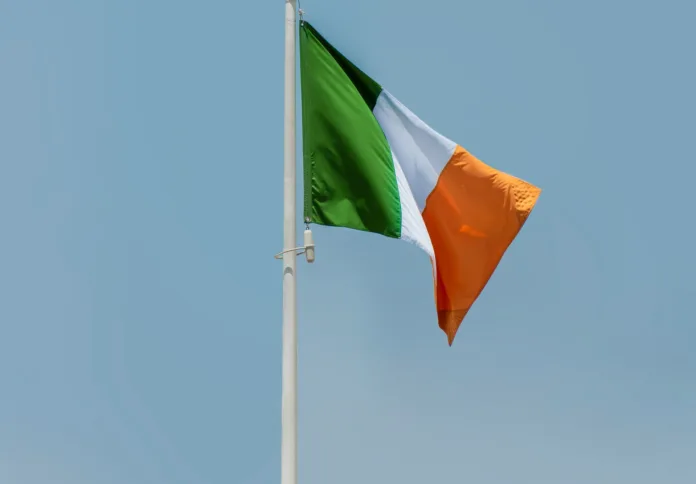Israel recalls ambassador to Ireland amid diplomatic tensions over Palestine recognition
Ireland’s ambassador to Israel, Sonya McGuinness, faced reprimand by Israel’s foreign ministry following Ireland’s decision to recognize Palestinian statehood. This diplomatic move triggered significant reactions from Israel, leading to the recall of its ambassador to Ireland.
On Wednesday, Israel called in the ambassadors of Ireland, Norway, and Spain to meet with Foreign Ministry director-general Yaakov Blitshtein. During the meeting, the three diplomats were shown a video released by the Hostages and Missing Families Forum. The footage depicted the moment five of the remaining 132 hostages were taken captive by Hamas last October.
Embed from Getty ImagesA spokesperson for Ireland’s Department of Foreign Affairs confirmed McGuinness’ meeting with Israeli officials but did not disclose details of any specific retaliatory measures. The spokesperson mentioned, “The Department of Foreign Affairs can confirm that Ireland’s ambassador in Israel attended a meeting in the Israeli Ministry of Foreign Affairs today, alongside her Spanish and Norwegian colleagues. The meeting included a forthright exchange of views on the issue of recognition of the State of Palestine, but did not include detail of any specific measures to follow as a consequence.”
The meeting followed the release of a 19-second video by the Israeli Foreign Ministry. The video combined footage of Hamas fighters with Irish traditional music, criticizing Ireland’s recognition of Palestine. Israeli foreign minister Israel Katz condemned Ireland’s decision, stating, “Ireland, if your goal was to reward terrorism by declaring support for a Palestinian state, you’ve achieved it.” He also targeted Taoiseach Simon Harris directly, tweeting, “@SimonHarrisTD, Hamas thanks you for your service.”
In response, Harris spoke on CNN’s Amanpour programme, asserting that the video would not distract from the real issues in Gaza. He emphasized, “There was never the wrong time to do the right thing,” and stressed that he would not tolerate any country misrepresenting the position of the Irish people. Harris reiterated his stance, stating, “The government of Israel should listen to other nations arguing for an immediate cessation of fighting in Gaza.”
Harris further noted that the recognition of Palestine is a unanimous view among European nations and leaders. He expressed confidence that more countries would join Ireland, Norway, and Spain in recognizing Palestinian statehood, despite Israel’s reaction. Senior government sources indicated that other countries considering this move had anticipated Israel’s response, including the recall of Israeli ambassador Dana Erlich from Dublin.
Meanwhile, Israeli forces continued their operations in the Gaza Strip, resulting in the deaths of at least 38 Palestinians on Thursday. The conflict included aerial and ground bombardments and close combat with Hamas-led militants in the southern city of Rafah, as reported by health officials and Hamas media.
The diplomatic tensions between Ireland and Israel underscore the complexities and sensitivities surrounding the issue of Palestinian statehood and the ongoing conflict in Gaza. The international community remains divided, with some countries advocating for Palestinian recognition and others supporting Israel’s stance on security and terrorism.
Analysis:
The diplomatic rift between Ireland and Israel over the recognition of Palestinian statehood reveals multiple layers of political and international relations dynamics. Analyzing the situation from political, sociological, and geopolitical perspectives provides deeper insights into the ramifications of Ireland’s decision and Israel’s response.
Politically, Ireland’s recognition of Palestine signifies a bold stance in the international arena. It aligns with the European Union’s broader, albeit varied, perspectives on the Israeli-Palestinian conflict. By recognizing Palestinian statehood, Ireland aims to advocate for Palestinian rights and push for a two-state solution. This decision also demonstrates Ireland’s commitment to international law and human rights, reflecting its historical stance on self-determination and conflict resolution.
Israel’s reaction, including the recall of its ambassador and the strong condemnation from Israeli officials, highlights the sensitivity of the Palestinian statehood issue. Israel views such recognition as undermining its security and sovereignty, especially given the ongoing conflict with Hamas. The use of emotionally charged videos depicting hostage situations underscores Israel’s attempt to frame the narrative around terrorism and security threats.
Sociologically, the recognition of Palestine by Ireland, Norway, and Spain illustrates a growing international empathy towards the Palestinian cause. This move resonates with global civil society movements advocating for Palestinian rights and justice. The backlash from Israel, however, reflects the deep-seated fears and historical grievances that shape Israeli society’s response to international criticisms and pressures.
Geopolitically, Ireland’s decision may influence other European countries contemplating similar recognition. The unanimous view among European leaders, as stated by Taoiseach Simon Harris, suggests a potential shift in European foreign policy towards more robust support for Palestinian statehood. This could lead to increased diplomatic tensions between Israel and the European Union, affecting trade, security cooperation, and political alliances.
The ongoing conflict in Gaza further complicates the situation. The latest reports of Israeli forces killing Palestinians in Rafah highlight the persistent violence and humanitarian crisis in the region. Ireland’s recognition of Palestine can be seen as an attempt to address these issues, pushing for a peaceful resolution and advocating for the rights of Palestinians amidst the conflict.
In conclusion, the diplomatic fallout from Ireland’s recognition of Palestinian statehood underscores the complexities of international diplomacy, political ideologies, and human rights advocacy. The situation highlights the contrasting perspectives on security, sovereignty, and self-determination, making it a pivotal moment in the ongoing Israeli-Palestinian conflict and international relations.
